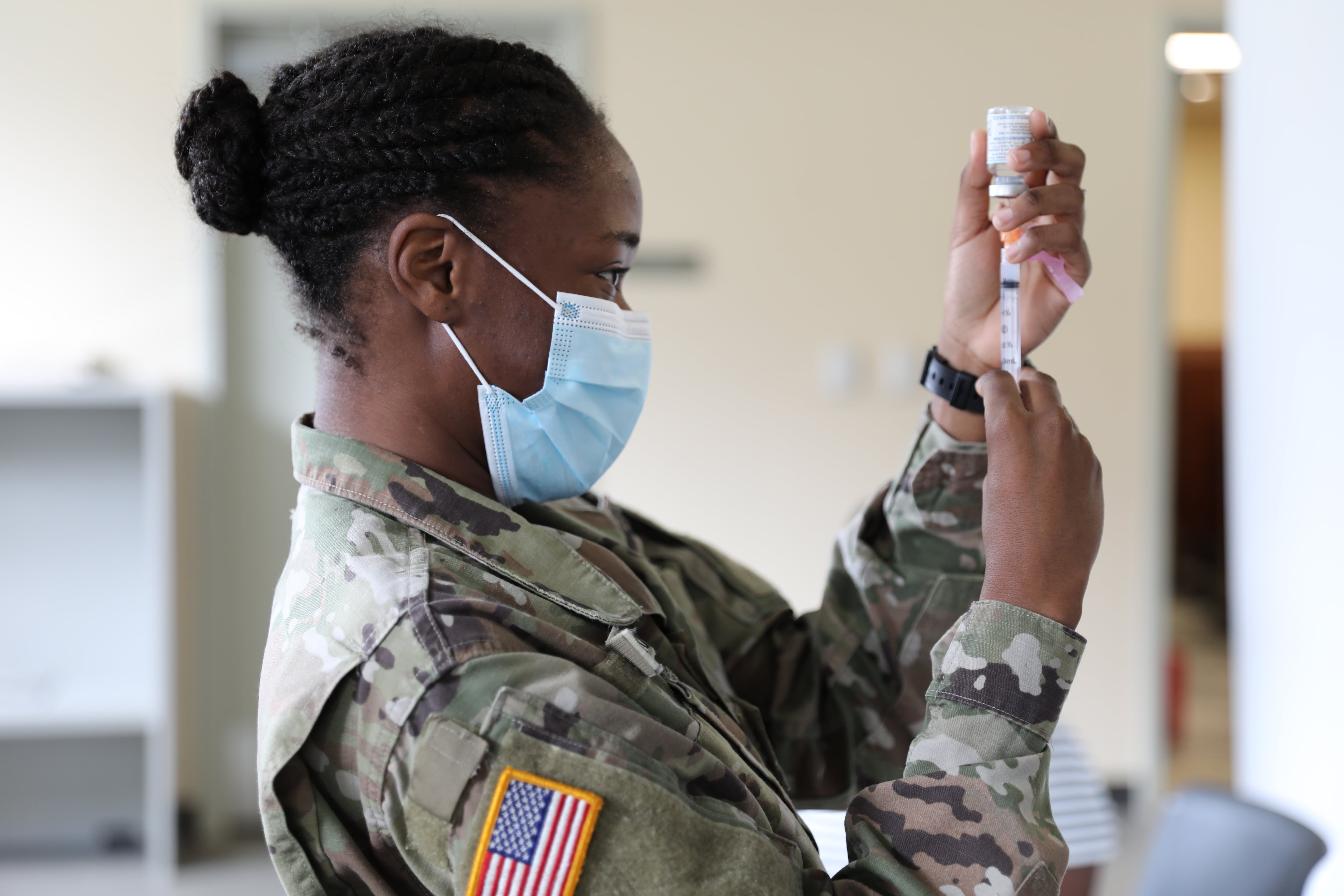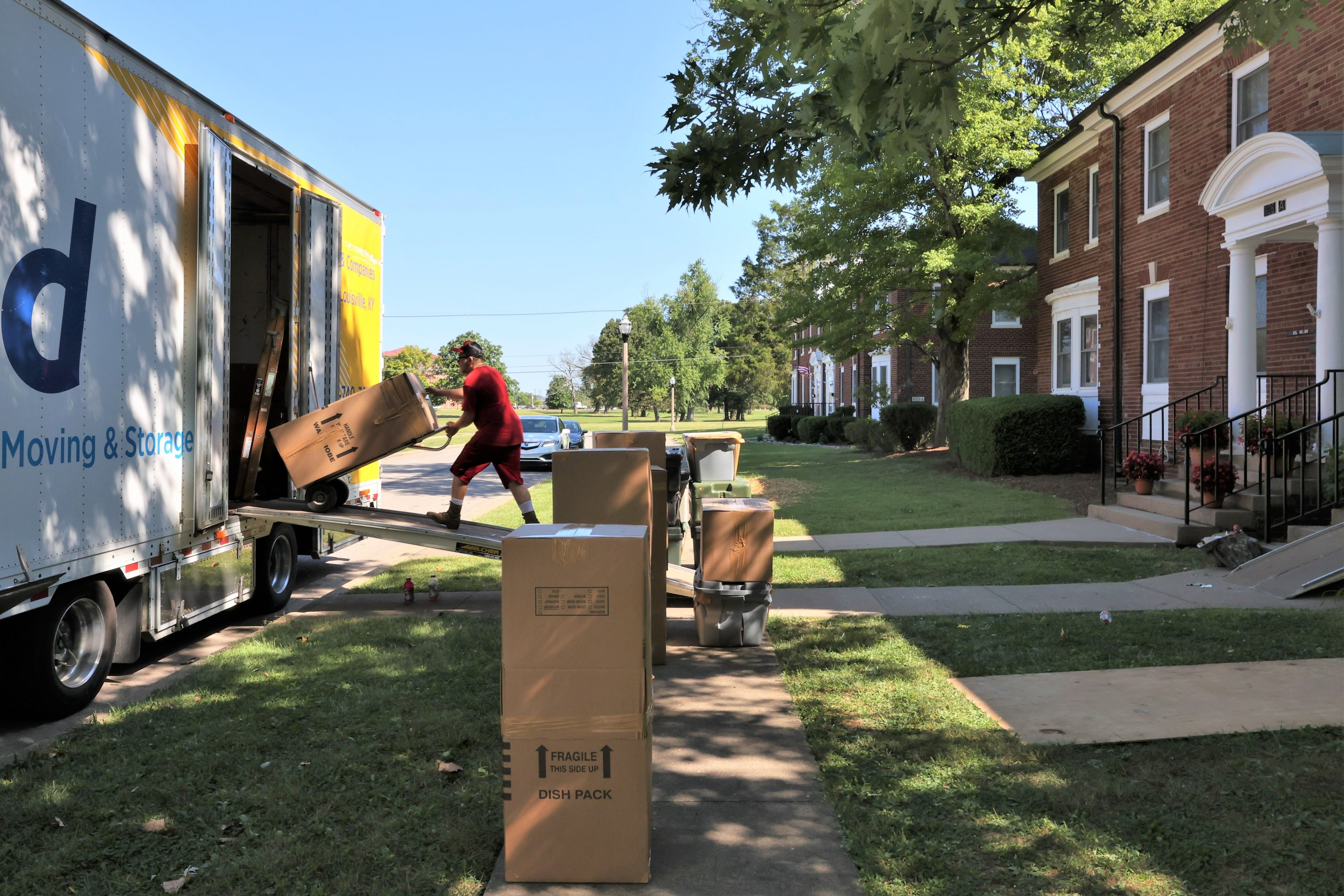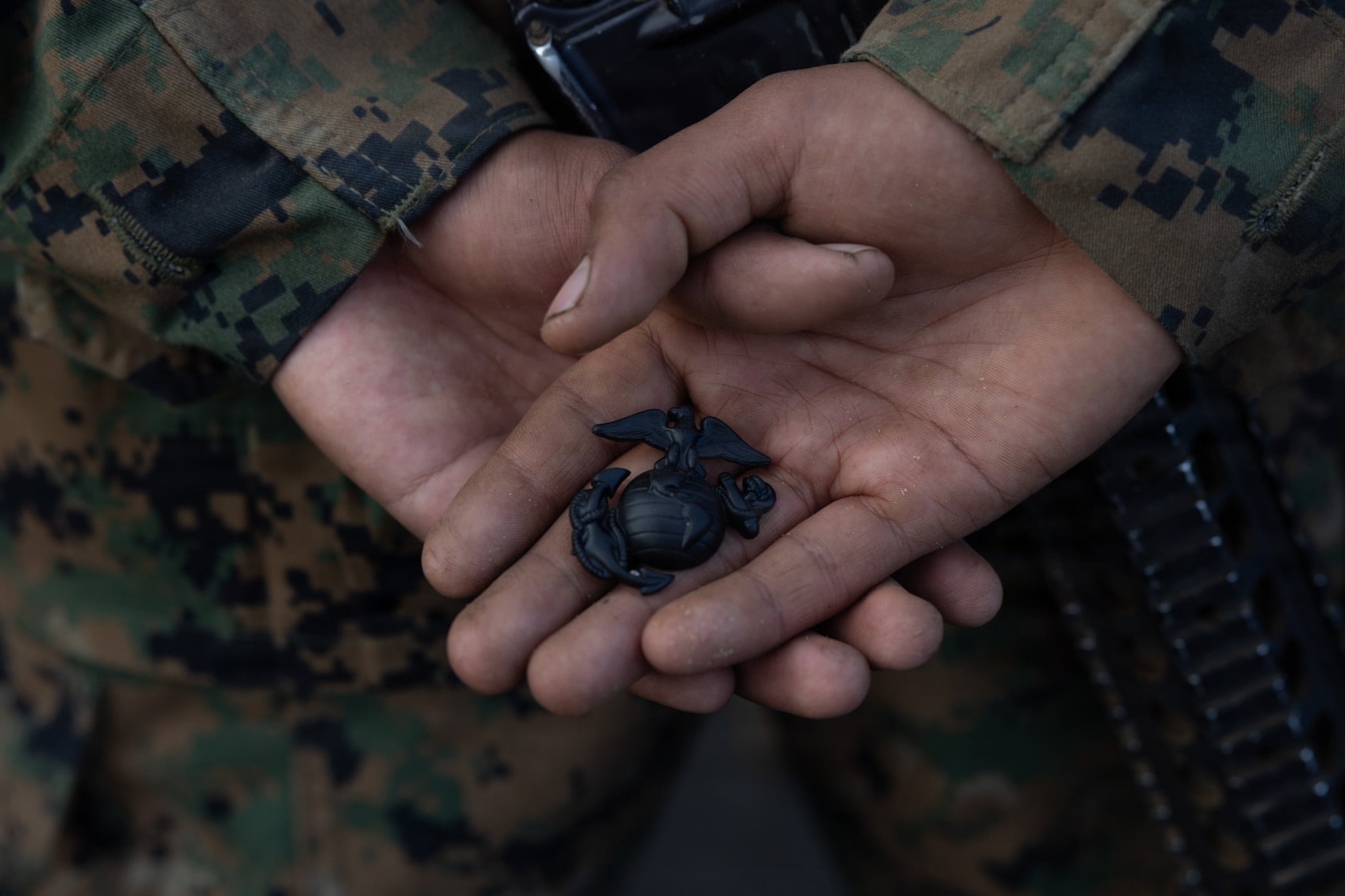Eleven service member deaths so far have been reported as a result of COVID-19 in October, according to Defense Department numbers released Wednesday, a third month in a row where fatalities numbered in the double-digits.
For all of 2020 and up until August 2021, generally only one or two troops died of COVID-19 complications each month, but as the delta variant surged around the country, so did cases in the military. August saw 15 deaths, September saw 14, and deaths dipped slightly in October as vaccine mandate deadlines closed in.
To date, 73 service members have died. Of those, 71 were completely unvaccinated, Pentagon spokesman Army Maj. Charlie Dietz told Military Times on Wednesday, and two had received the first of a two-dose regimen.
The most recently reported deaths include:
- Army Reserve Sgt. First Class David Smith, 56, died Oct. 29. He was a career counselor for the 4th Battalion Army Reserve Careers Group in Columbia, South Carolina.
- Idaho Air National Guard Tech Sgt. Adam Holtz, 47, died Oct. 30. He was assigned to the 266th Range Squadron.
To date, the services have reported 250,902 cases, 11 percent of the force, compared to 14 percent of U.S. residents overall. That represents the biggest gap in the two populations since the early days of the pandemic, when service members were contracting the novel coronavirus at a much lower rate than the civilian population. That evened out in summer 2020, and had stayed that way until recent weeks.
The military’s lower new case rate comes as all of the services are closing in on deadlines for mandatory vaccination. As of Wednesday, 1.48 million troops ― or 64 percent ― of service members are fully vaccinated, with another 286,724 who have received one of a two-dose regimen.
The majority of unvaccinated troops are in the reserve components, which also have extended deadlines for vaccination. In the active-duty force, 97 percent have had at least one dose of a vaccine, with deadlines through Dec. 15.
RELATED

The active-duty Air Force hit its deadline on Tuesday, with 97 percent of airmen and guardians having at least started the vaccination process. While about 1,500 were awarded medical or administrative exemptions ― though no religious exemptions thus far ― another 8,500 could face involuntary separation if they don’t comply with the mandate.
The Air Force Reserve and Air National Guard have until Dec. 5. to be fully vaccinated. With 75 percent of the overall Space Force and Air Force at least partially vaccinated, there are roughly 160,000 airmen still left to start the process or receive a waiver.
The Navy and Marine Corps active-duty deadlines are up next, on Nov. 28, requiring a final dose no later than Nov. 14.
The Navy announced on Tuesday that it has granted five permanent medical exemptions for the COVID-19 vaccine, but would not discuss the status of any religious waiver requests. As of Wednesday, more than 345,000 active-duty sailors ― 99.3 percent ― are at least partially vaccinated. Combined with the Navy Reserve, 391,000 ― 97 percent of sailors ― are at least partially vaccinated.
The Marine Corps is reporting nearly 193,000 ― 88 percent ― at least partially vaccinated as of Wednesday.
The Army, which has the longest deadlines, is the least vaccinated service, with just over 708,000 ― 70 percent of the overall force ― at least partially vaccinated, most of those in the Reserve and National Guard components.
Those organizations have also seen the majority of COVID-19 deaths. Though they account for 20 percent of military personnel, they have been 32 percent of the fatalities.
“It’s fair to say that the secretary is concerned about the rate of infection that we continue to see and quite frankly, the deaths, which are still occurring inside the active-duty force, as well as the Guard and Reserve,” Pentagon spokesman John Kirby told Military Times on Thursday.
Defense Secretary Lloyd Austin left it up to the services to create their own vaccine mandate timelines. While the other four services gave their reservists an extra 30 days to comply, the Army gave its members more than six months, setting a June 30 deadline.
Kirby has said that Austin reserves the option to order the Army to move up that deadline. In a meeting with Pentagon senior leaders Wednesday, he added, Austin discussed options outside of military health channels for reservists to be able to get vaccinated.
Part of the challenge for reservists has been not only about getting vaccinated while drilling, but also about scheduling appointments with civilian providers and then getting their vaccine status updated in military health databases.
“He’s glad to see that the percentages are continuing to climb, of vaccinations, but what he really wants to see ... is 100 percent,” Kirby said.
Meghann Myers is the Pentagon bureau chief at Military Times. She covers operations, policy, personnel, leadership and other issues affecting service members.










